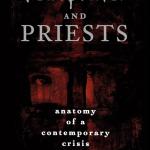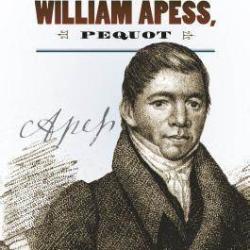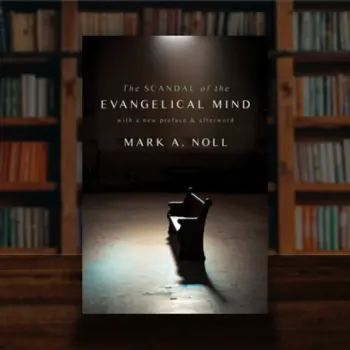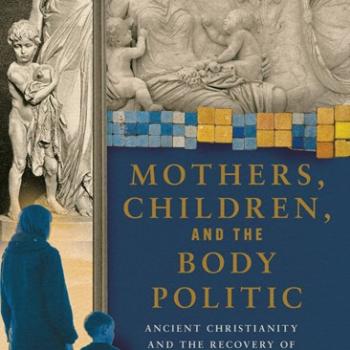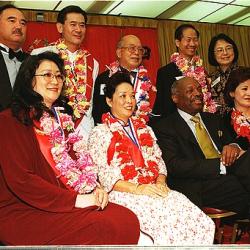Last month, I read two recently-released books grappling with trends within evangelicalism: Sarah McCammon’s The Exvangelicals and Tim Alberta’s The Kingdom, the Power, and the Glory.: American Evangelicals in An Age of Extremism. While certainly different in tone, aim, and scope, both authors identify (and personally corroborate) fractures within evangelicalism and disillusioning trends. Taken together, a striking portrait emerges not only of this historical moment in evangelicalism but its intimate effects.
(*Note: Both authors read their own audiobooks!)
A quick summary:
In the Exvangelicals, NPR reporter Sarah McCammon employs both her journalistic training and her own native understanding to offer the first definitive account of the movement of mostly young, “largely online” (14) who were raised in (white, conservative) evangelicalism, but no longer identify as evangelical. They include not just white millennials like McCammon (and Alberta) but nonwhites, women, LGBTQ and affirming folks. Some continue to identify as Christians or as believers in Jesus, attending (or not) other types of churches, and others do not. While exact numbers of those raise in evangelicalism who now do not claim the faith is hard to pinpoint, the figure helps comprise the rising percentage of Gen Z (34%) and millennials (29%) that identify as “Nones.”
The Exvangelicals constitutes McCammon’s attempt to describe this new demographic and, with her keen eye and personal knowledge, offer some suggestions as to its origins and consequences.
Most of the exvangelicals McCammon spoke to for the book are young, raised in the “shadow of the Moral Majority.” These people came of age receiving the message that alignment with conservative social and political beliefs amounted, more or less, to alignment with the gospel itself. As those political beliefs have a turn toward the violent and amoral, this unholy tangling was exposed.
As a result, despite the political and legal victories for evangelicalism–the triumph of that movement in overturning of Roe, the hard turn of local and state house, the cultural surge of white Christian nationalism— McCammon asserts that it is simultaneously a moment of “confusion and disillusionment.” (3) It may seem an irony/contradiction, but one that makes sense if you consider the way of Jesus: an unfollowing as the love of power crests (244).
To tell this story, McCammon interviews friends and connections, folks who have publicly identified as Exvangelicals. She speaks to Jeff Chu and Emily Petrini and Abraham Piper. These stories are organized thematically, taking up political character, race, homosexuality, purity culture, and a particularly heartrending chapter on corporeal punishment, among others. Interviewing these evangelical insiders from the cultural movement of the 1980s-2000s, McCammon’s portrait is layered and deeply personal. What comes through most is a sense of alienation —for better or worse—from the rigid certainty evangelicalism offered. And some bitterness.
While her tone is conversational, McCammon engages, albeit briefly, many scholars of evangelicalism. She cites the work of many friends of the Anxious Bench (and mine): Malcolm Foley, Jemar Tisby, Sam Perry, Isaac Sharp, Kristen Du Mez, as well as Randall Balmer, David Gushee, David Dark, and Diana Butler Bass. The result is a personal if important contribution about this particular moment in American religious history.
By contrast, Tim Alberta’s extensive 500-page book stands as an extensively researched ethnography of this moment in evangelicalism. Alberta draws out compelling, bizarre and sometimes frustrating characters, excavates deep histories on denominations and conspiracies, and offers unflinching analysis. The Kingdom, The Power, and the Glory explains, in terrifying detail, the hypocrisies and perils of conservative evangelicalism’s Faustian bargain.
Trump comes up a lot. But the central issue is deeper, one that Alberta imagines theologically. “Instead of fixing our eyes on the unseen,” he says, “we,” that is Christians, “have become fixated on the here and now. Instead of fleeing temptation to rule all the world, like Jesus did, we have made deals with the Devil.” The question is why. Or as Alberta’s wife understandably put it: “What the hell is wrong with us?”
In seeking an answer, Alberta visited “half-empty sanctuaries and standing room only auditoriums,” talked with “big city televangelists and small town preachers and everyday congregants,” considered evangelical institutions, like colleges, nonprofits, and publishers. Interviews with influential leaders like Doug Olson of Liberty University or Robert Jeffers of First Baptist Dallas, with David French and Russell Moore, as well as with regular pastors show Alberta’s journalistic reach and influence. He asked folks questions about COVID and January 6, about polarization, and Bill Clinton, finding, much to his own personal dismay, “the deterioration of American Christianity.” Abandoning the Sermon on the Mount, congregants mainline right-wing newsmedia, abandoning ecclesiastical covenant vows for churches than align with their extreme politics. As a result, pastors are burned-out, discouraged, and even afraid.
Alberta locates the genesis of the shift to the end of the Cold War, when the enemy shifted from godless communists without to, well, godless communists within. Abetted by the Clinton scandals, and the hysteria around America’s first Black President, evangelicalism has fully embraced a siege mentality, one that justifies any evil to ward off the imagined threat. The Kingdom, The Power and the Glory charts these developments in stunning detail, the result of which is historically persuasive and spiritually shattering.
Differences:
Both The Exvangelicals and The Kingdom, the Power, and the Glory are memoirs, but they read quite differently. McCammon’s account is broad, anecdotal, and often personal. She toggles between childhood recollections and recent PEW data. She interviews twitter friends and digs into the family archive. The result is not only a snapshot of this era in American life but also of her life. She parses through her own theological commitments and questions, describing fights with her mother in her teen years, coming to terms with her paternal grandfather’s identity as a gay man, her own divorce from her Christian college sweetheart. Alberta’s book on the other hand is framed personally, around his father’s funeral and his home church, Cornerstone, in Brighton, Michigan, but less personal throughout. Instead, Alberta’s interest is in detailed description and sharp, if still generous, analysis. His own ideas and opinions are present, but his own religious journey is less the focus.
The two are also writing from different religious spaces. McCammon herself leans Exvangelical, “still attached to the story of Jesus,” but no longer exclusively within that tradition. Alberta remains. Wrenching against what he sees as a deviation from the evangelicalism he grew up in, his determined reporting can be understood as an act of journalistic lament. He writes “we are called to be followers of Jesus; we are called to make disciples of all nations,” as he mourns that the label “evangelical has become an impediment to evangelizing.” Alberta loves the gospel of Jesus and the church, and his searing book is in fact evidence of that deep love.
Similarities
Despite the distinct aims and tones, there is much about which The Exvangelicals and The Kingdom, the Power, and the Glory agree. Both clearly see this as a crucial moment for evangelicalism in America—the identity if not the faith. Co-opted into a political project of fear and (quite literal) demonization of dissent, evangelicalism’s witness they claim has been hopelessly compromised. Taken together, the two works offer a serious journalistic contribution to a moment not to be ignored. Historians will find them, today and in the future, an invaluable primary source.
Aside from the urgency of this time, the books share other revealing similarities.
In particular, both zero in on the utter collapse of truth: the denial of clear evidence, the embrace of alternative facts, the blind adherence to conspiracies. Even the tenets of the faith are up for alternative interpretation. Both books bring up the oft cited stat on the importance of personal character for political leaders from Clinton to Trump, the invented theology of Cyrus or David as either evil or sinners, but placed in power by God to advance Israel’s interests. At moments, some evangelicals will momentarily acknowledge the hypocrisies or unevenness, the justification resorting, to Alberta’s argument, to worldly expediencies. As Robert Jeffers succinctly put it to Alberta: “I don’t want someone who’s going to turn the other cheek…I want to the meanest toughest SOB I can find to protect this nation.” He and other evangelicals are absolutely convinced that, despite the rise of white Christian nationalism, they are the persecuted minority, always an election away from outright religious persecution. That fear justifies extreme rhetoric, twisting falsehoods, and even to embrace immoral leaders.
On that note: interestingly, both books devote chapters to the disgraced and disgraceful Jerry Falwell, Jr., who perhaps serves as an embodiment of the cravenness and moral rot over generations. (Also, as an aside: Of my long-standing question about Eric Metaxas’ sincerity or swindle, Alberta sums: “Corruption and psychosis are not mutually exclusive.”)
Both books see this shift as having occurred over the past generation, finding a harsh and disorienting break from their parents. Boomers, who experienced conversions in the 1970s and 1980s, as McCammon and Alberta did, were baptized into faith at a particularly heady cultural moment for evangelicalism. Believing in Jesus, being saved, attending church were part and parcel with opposing abortion and embracing Republicanism, all marks of zeal for the convert both theologically and politically. McCammon and Alberta grieve their parents’ blindspots even as they admire their faith, a generational story of great enthusiasm for Christ eroded over time by the idolatry of self-righteousness.
The similarity most striking to me, and most heartbreaking, was that both books belie a strong sense of betrayal. McCammon and Alberta were raised in the church. They each recall knowing each pew, each person, practicing Bible recitations, and sincere conversions. They were both formed, spiritually and intellectually, in these church spaces. For instance, McCammon recalled Odyssey tapes, Brio magazine, Blue Ridge Christian School, serving as a GOP Senate page to influence politics for Christ. She recalled receiving a comprehensive “worldview education” (79). Alberta, too, was taught that “Christians are called to reflect the awesome power of a God who renews minds and transforms hearts—who dwells within us, seeking our complete devotion to him, commanding us to lead lives of truth and love that might shine His light in a darkened world,” leaving him reeling to encounter evangelicals for whom “Character didn’t matter. Truth didn’t matter. Honor and integrity didn’t matter. Those were means, and all that mattered was the ends: winning elections.”
This intellectual and emotional whiplash resonated deeply with me too. Like McCammon, I also went to a Christ-centered college prep school where I was taught (in addition to some heavy-handed apologetics) that all truth was God’s Truth, that we could read and wonder deeply, without fear. God was the author and source of all and all sincere learning, all moral searches for truth ended in Him. We were warned, then, about discarding truth and beauty for the dreaded “moral relativism,” or prevailing political dogmas, which, tragically, many conservative evangelicals now wholeheartedly embrace. It has been wild–and profoundly disappointing–to witness so many Christians intellectually warped by fear and lust for power.
While the intellectual betrayal confounds, for these children of faith, it’s the spiritual one that stings the most. Alberta’s book wrestles with the sincerity and limitations of his father’s faith, thankful that he “showed me how to live for Christ,” but written in response to his (and many others’) blind spots. As for McCammon, she laments: “I was taught to try to mimic Christ, to love generously, even at a great cost. Even when people don’t deserve it. Even when they hurt us, I was taught to pray, “Father, forgive”…and I was taught to speak the truth. I was taught this and much more by evangelicals” (11). Evangelicals who now don’t seem to believe it at all. The animating contention of both The Exvangelicals and The Kingdom, the Power, and the Glory is that the good news McCammon describes, this loving grace power, has been traded for temporary political winds. Just as Esau traded the blessing of Isaac for a bowl of stew, evangelicals have let their temporary hunger for influence and dominance, trump their beautiful witness.
But because I, too, came up in the evangelical Protestant tradition of biblical literacy, I remember how that particular story ends. God works grace for Jacob and Esau, and through them. We don’t know what God is up to in our days, in his church, but God is always up to something good. God isn’t concerned about his kingdom, his power, his glory. They are sure and already. Christians—even exvangelicals, even evangelicals—might take hope: they don’t need to fight or conquer; it is finished.







